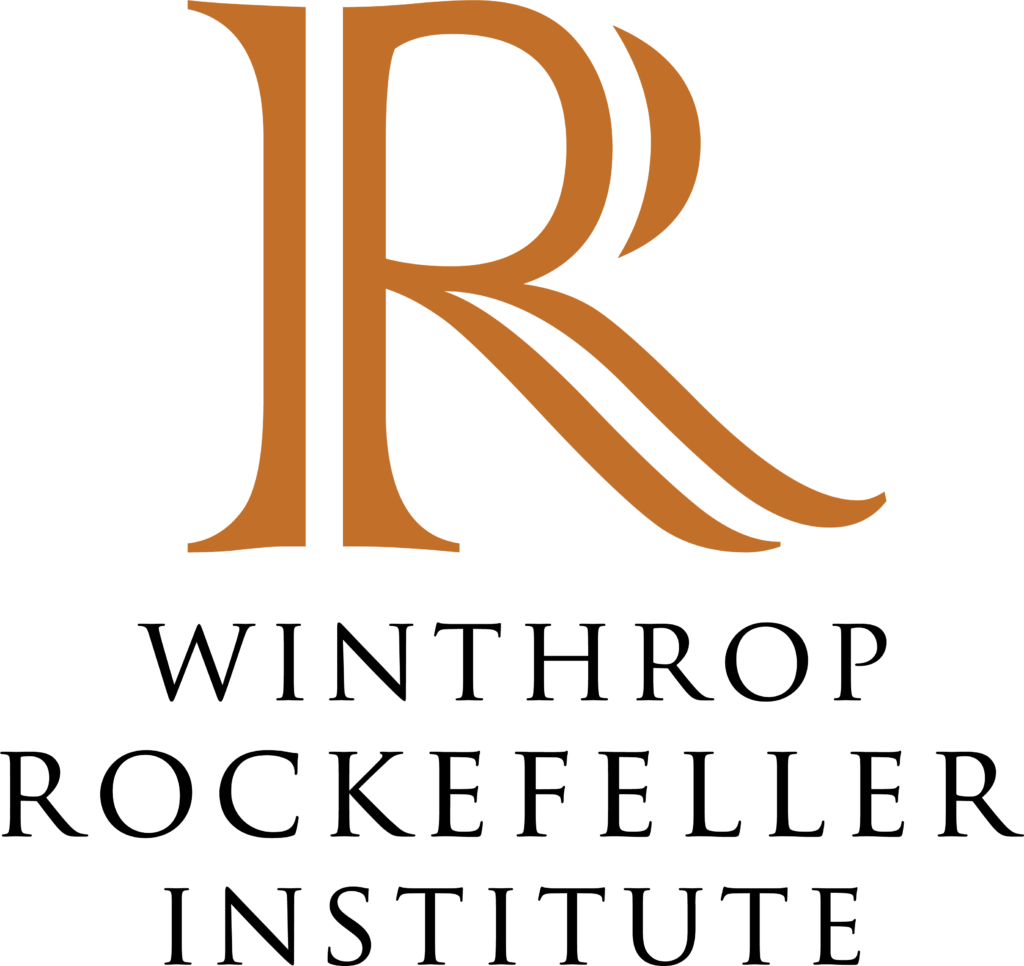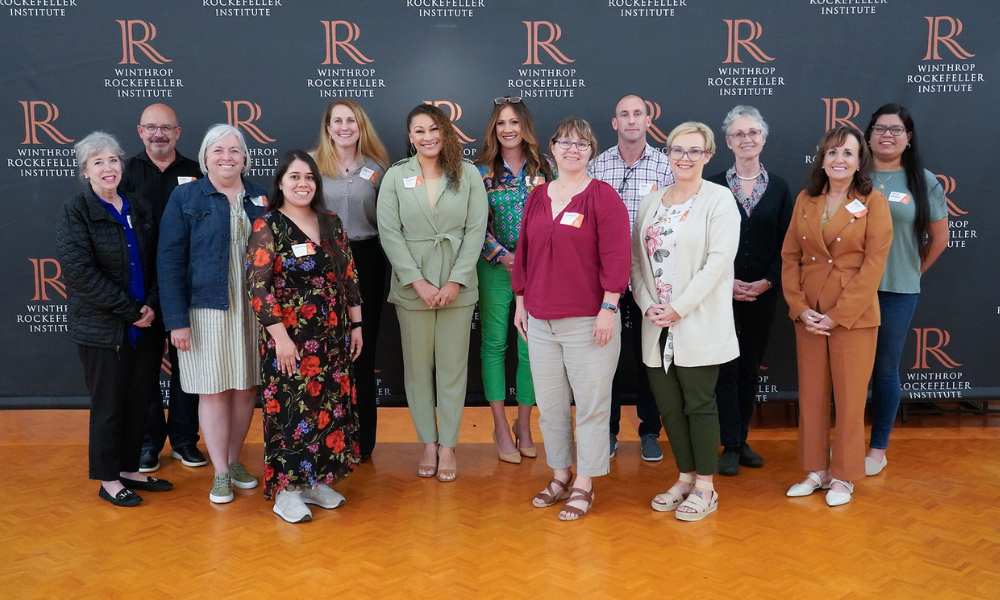Beginning in early 2023, the Institute has partnered with the Delta Dental of Arkansas Foundation to convene representatives from clinics across the state to create a guide detailing best practices for community and charity dental clinics to start billing and accepting third-party payments.
Many free clinics see patients covered by a third-party payer, like Medicaid, but don’t have the infrastructure to bill for their services. We hope this playbook can help clinics easily implement billing so that expanded services can be offered. At the same time, new revenue streams can be used to bring improved services to more Arkansans, thus improving dental and health equity in our state.
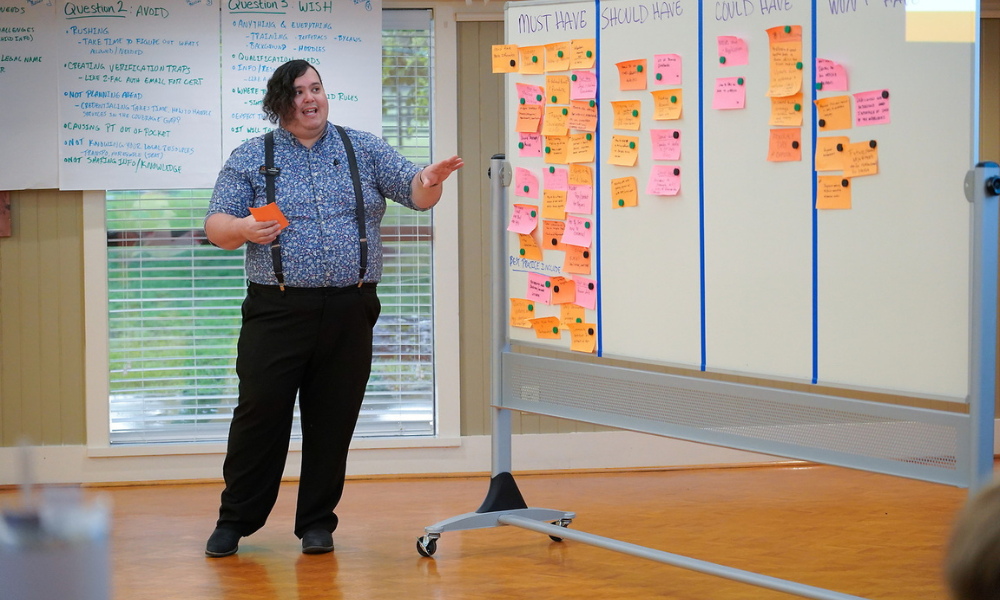
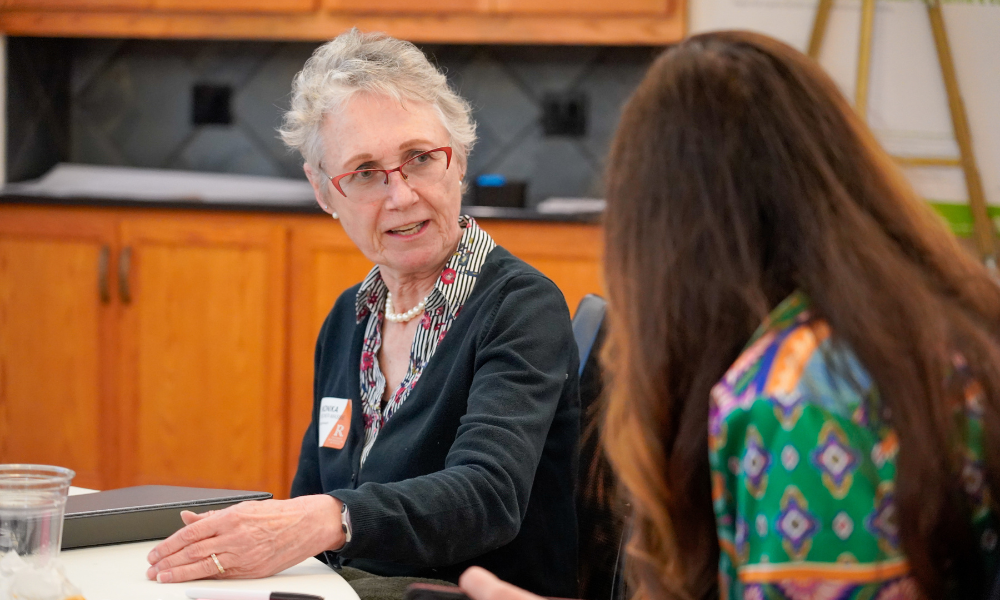
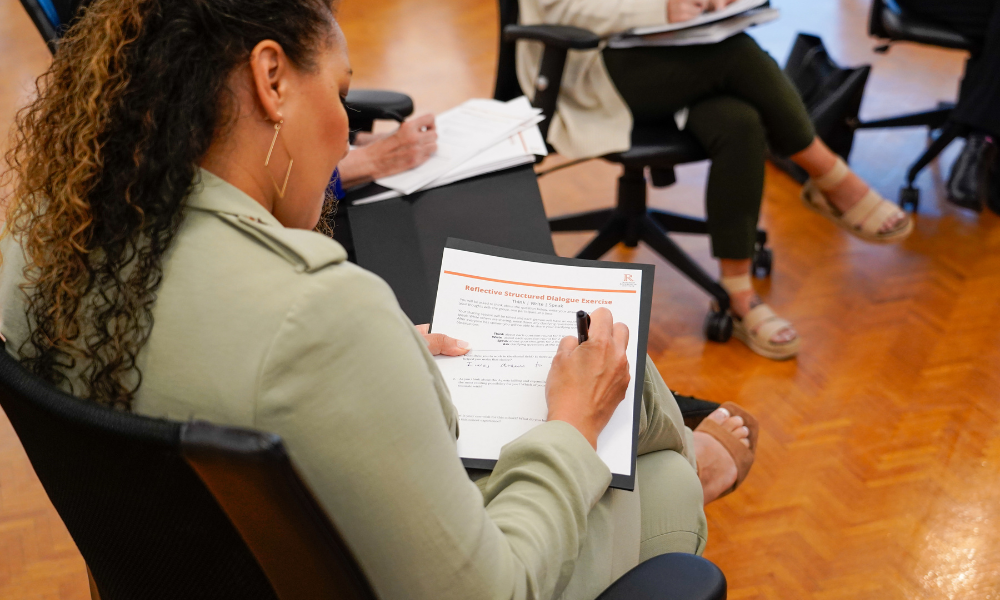
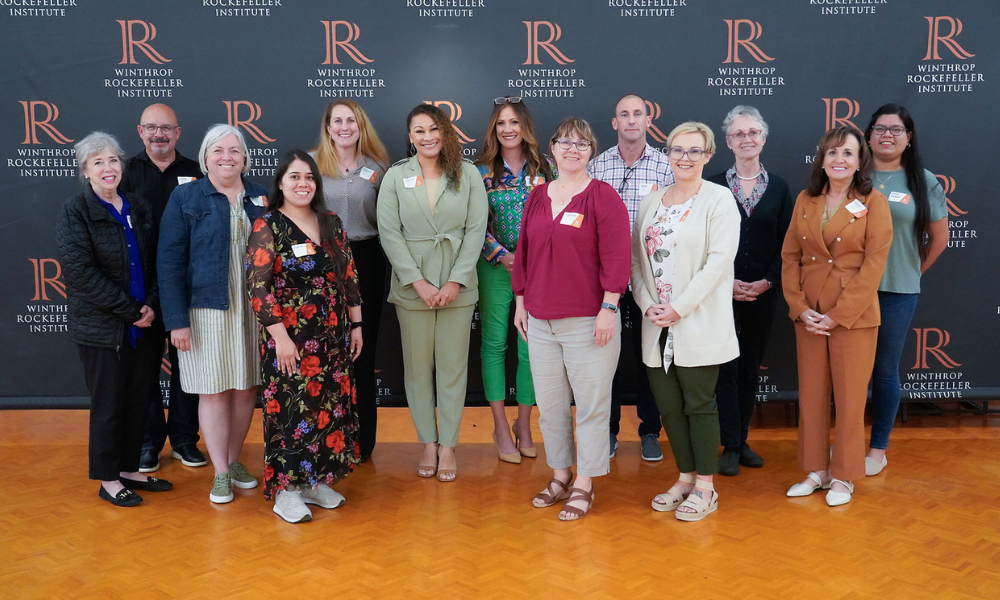
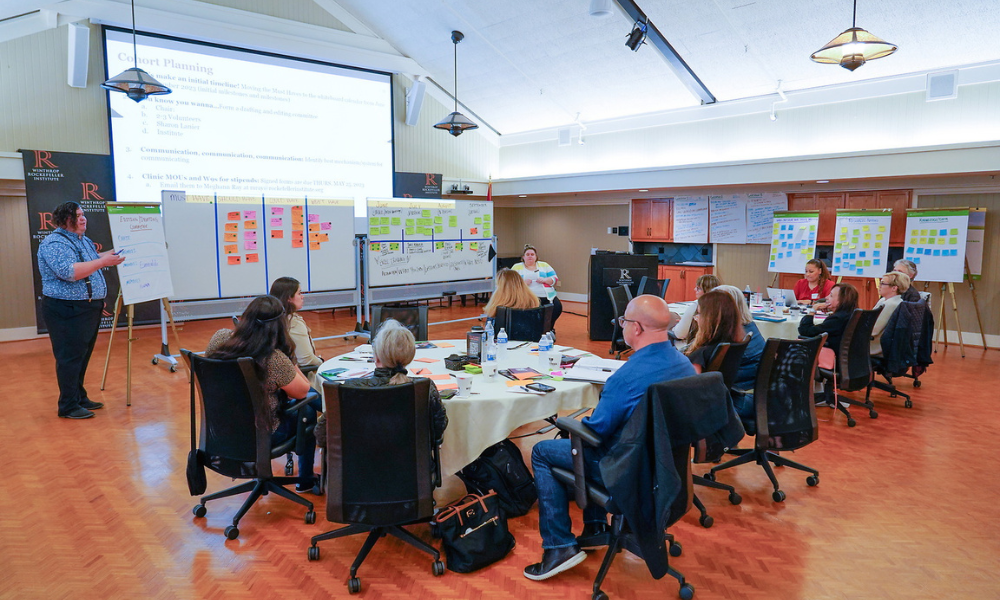
“This collaboration has been an eye-opening, informative, and dream project in a way,” Meghann Ray, Institute program officer, said. “I am inspired by their hard work and dedication and their passion to improve the dental health of all Arkansans. We just finished a productive third meeting with our cohort, which wouldn’t be possible without the expertise and experience of our members.”
The editorial below was originally written by Sharon Lanier, Ph.D., and published in the Arkansas Democrat-Gazette on Aug. 6, 2023. Lanier is the executive director of the Delta Dental Foundation for Arkansas and a main partner of this collaboration.
In a state that continuously ranks near the bottom in oral health, the Delta Dental of Arkansas Foundation is taking the lead in identifying and supporting groundbreaking initiatives that could significantly improve the smiles of Arkansans.
With grant funding earmarked for innovative projects, the Foundation is set to help unleash creative programs and endeavors that seek to improve equitable access to dental care and guide systemic changes.
From research and advocacy to changing socio-cultural perceptions about oral health, our Strategic Initiative Grant funding opportunity could reshape the landscape of oral health in Arkansas, one brilliant idea at a time.
The Foundation is now accepting grant requests and partnership proposals.
Who is ready to pitch?
Here is an example of the Strategic Initiative Grant the foundation recently approved:
The Winthrop Rockefeller Institute (WRI) received more than $46,000 to implement an original Delta Dental of Arkansas Foundation idea. It is convening a group of charitable dental clinics from underserved areas of the state to re-imagine methods for serving their communities. This cohort of clinics will develop a playbook for other charitable clinics with capacity-building best practices for expanding billing procedures and accepting third-party payments for services.
The project has the potential to enable charitable dental clinics to expand their services sustainably and serve more members of their communities. Third-party billing would generate a new, reliable income stream to fund expenses such as salaries, rent, equipment, etc. This would allow for greater clinic utilization rates to treat more people and offer more services.
Why is this important? Many Arkansans face significant barriers to accessing dental care:
Only about one in two Arkansans has dental insurance, either commercial coverage or a form of Medicaid, according to a 2022 oral health survey conducted by the Arkansas Center for Health Improvement. Even the 54 percent with dental insurance don’t necessarily have adequate coverage to pay for all their dental care.
An unequal distribution of dentists limits access to dental care in some parts of the state. The most recent data from the Arkansas Department of Health in 2020 shows an overwhelming concentration of dentists, more than 72 percent, in central and northwest Arkansas. Another 16 percent practice in the northeast. Only 7 percent serve the state’s southwest corner, and even fewer in the southeast, 4 percent. These areas are predominantly rural and low-income. Some counties have no dentists at all.
Costs and lack of access thwart a lot of Arkansans from obtaining regular preventive dental care and instruction in proper oral hygiene. As a result, they risk developing severe tooth decay and gum disease that necessitate last-resort dental treatments like extractions and dentures. Some dentists perform these services at greatly reduced prices as a community service. Still, the go-to places for most underprivileged Arkansans without health insurance are charitable or low-cost dental clinics.
Over the years, The Delta Dental of Arkansas Foundation has provided hundreds of thousands of dollars in grants for last-resort dental treatments. The clinics delivering those services at little to no expense to individuals fill an urgent need.
But a couple of years ago, a comment from one of our board members served as a wake-up call.
He said, “If we keep funding extractions today, we’ll be funding extractions 20 years from now, with no improvement or change whatsoever of the state of oral health in Arkansas.”
Precisely.
In response, the Foundation is expanding its focus. While still supporting charitable dental clinics, it has begun partnering with organizations that actively seek to implement transformational solutions. The goal is to develop upstream oral health initiatives that empower more Arkansans to experience a lifetime of healthy teeth and gums and improved quality of life–like the collaboration with the Winthrop Rockefeller Institute, which is putting into practice an idea first conceived by the Delta Dental of Arkansas Foundation.
The project aims to increase the number of dental clinics in Arkansas that bill and accept payments from third parties, especially Medicaid, by developing a playbook–or resource guide–detailing best practices and know-how.
Why don’t many free dental clinics bill already, instead of relying on grants and donations to fund their operating expenses?
The key reasons emerge repeatedly in research, conversations and applications for support:
Free dental clinics tend to operate with limited staff and resources and lack the personnel and infrastructure to handle the complexities of the provider credentialing process, insurance verification, claim submission, and compliance and regulatory requirements. Because they are stretched so thin with high demands for their services, they may lack the time and energy to explore creative, innovative ideas.
They serve patients who might lack proper identification or documentation, making it difficult to meet the requirements of third-party payers. They are worried that an expansion to third-party billing might divert from their mission of serving those in need.
Last but not least: They fear losing their 501(c)(3) status–a widespread misconception.
These are valid concerns; the WRI initiative hopes to address every one.
Since mid-spring, it has hosted meetings with clinicians from 10 free and low-cost clinics, plus subject matter experts such as lawyers, regulatory and licensing agents, and insurance billing specialists. Through this peer-to-peer learning, they are exploring the challenges and opportunities surrounding third-party billing in the dental industry. What worked in the past, what didn’t; why and why not?
In addition to brainstorming possible solutions with fellow practitioners who understand the unique characteristics of a free dental clinic, the clinics are also learning quality improvement techniques to help foster trusting partnerships with the communities they serve.
By year’s end, the WRI hopes to have consolidated all lessons learned into a comprehensive guidebook that charitable dental clinics will use to understand the steps to implement third-party billing. If–thanks to this playbook–their billing programs prove successful, the clinics will most likely generate additional revenue streams to invest in expanding services.
Expanding services would mean hiring additional dental staff, extending clinic hours, treating more patients, and providing preventive and restorative dental services rather than last-resort extractions and dentures.
The result: More Arkansans would benefit from quality dental care–a systemic change that could quite possibly elevate Arkansas’ oral health ranking from near bottom to–well, let’s dream big–the top.
To help reach the top, we invite Arkansas nonprofits, government agencies and educational institutions to reach out to the Delta Dental of Arkansas Foundation about Strategic Initiative Grant funding.
